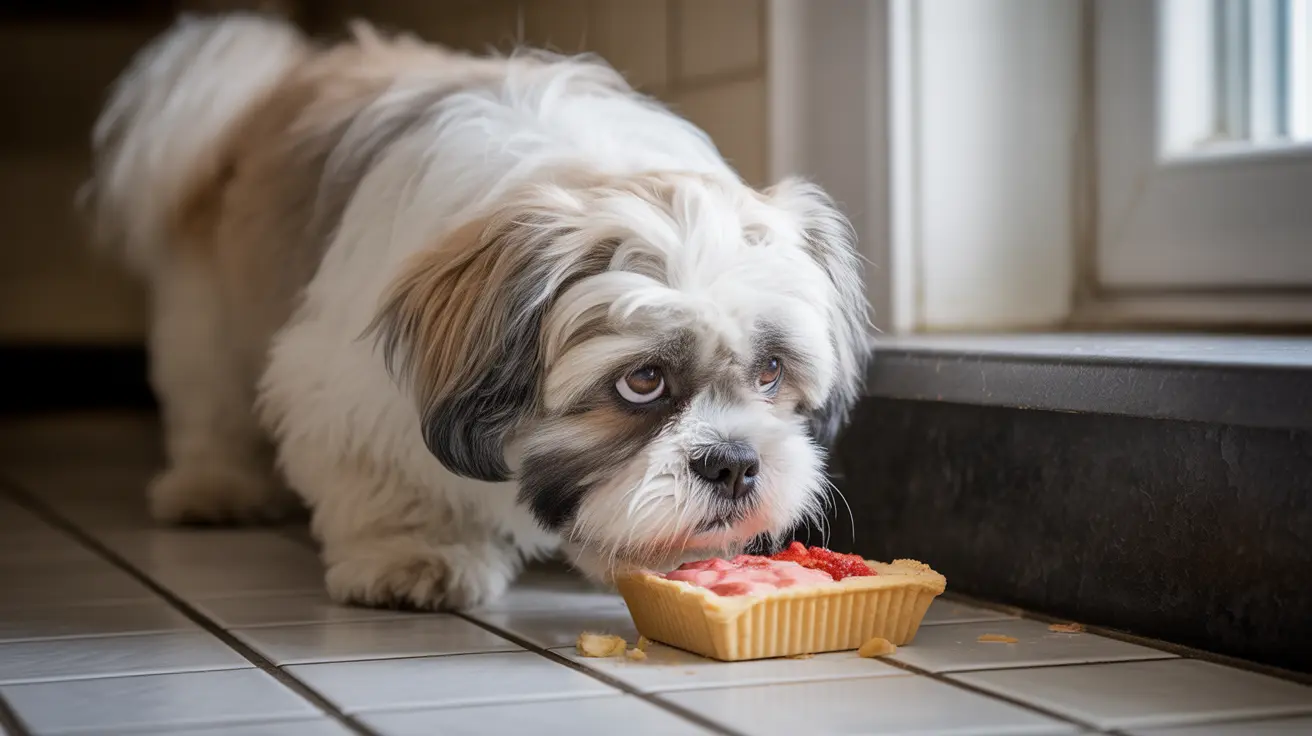As a pet owner, you might wonder if sharing your favorite breakfast pastry with your furry friend is safe. The short answer is no - dogs should not eat Pop-Tarts. While not all varieties are immediately toxic, these sugary treats can pose significant health risks to your canine companion.
Let's explore why Pop-Tarts are problematic for dogs, what risks they present, and what you should do if your dog manages to snag one of these sweet treats.
Understanding Pop-Tarts and Their Impact on Dogs
Pop-Tarts are processed toaster pastries containing refined flour, high amounts of sugar (approximately 43% by weight), fats, and artificial ingredients. This combination makes them particularly unsuitable for canine consumption, as dogs' digestive systems aren't designed to handle such concentrated sources of sugar and processed ingredients.
Dangerous Ingredients to Watch For
Some Pop-Tart varieties contain ingredients that are toxic to dogs:
- Chocolate flavors contain theobromine and caffeine, which can cause severe poisoning
- Certain varieties may contain xylitol, an artificial sweetener that can cause life-threatening hypoglycemia in dogs
- Artificial colors and preservatives that may trigger allergic reactions
Health Risks of Feeding Pop-Tarts to Dogs
Even non-toxic Pop-Tart varieties can cause several health issues in dogs:
Short-term Effects
- Gastrointestinal upset
- Vomiting and diarrhea
- Stomach pain
- Lethargy
Long-term Consequences
- Obesity
- Diabetes
- Dental problems
- Heart disease
- Metabolic disorders
What to Do If Your Dog Eats Pop-Tarts
If your dog consumes Pop-Tarts, take these immediate steps:
- Check the flavor and ingredients list
- Determine how much was consumed
- Monitor for signs of illness
- Contact your veterinarian if:
- The Pop-Tart contained chocolate or xylitol
- Your dog ate multiple pastries
- Your dog is showing concerning symptoms
Safe Treat Alternatives for Dogs
Instead of Pop-Tarts, consider these healthy treat options:
- Small pieces of lean, cooked meat
- Fresh apple slices (without seeds)
- Baby carrots
- Commercial dog treats formulated for canine nutrition
- Plain, low-fat frozen yogurt designed for dogs
Frequently Asked Questions
Can dogs safely eat Pop-Tarts, or are they harmful to my pet's health?
No, dogs should not eat Pop-Tarts. While some flavors aren't immediately toxic, they contain high levels of sugar, fats, and processed ingredients that can harm your dog's health both short-term and long-term.
What should I do if my dog accidentally eats a chocolate or xylitol-containing Pop-Tart?
Contact your veterinarian immediately. These ingredients can be toxic to dogs and require prompt medical attention. Have the packaging ready to share ingredient information with your vet.
Why are Pop-Tarts bad for dogs even if they don't contain toxic ingredients like chocolate or xylitol?
Pop-Tarts are unhealthy for dogs due to their high sugar content, refined flour, and artificial ingredients. These can lead to obesity, diabetes, dental problems, and other health issues over time.
What signs of illness should I watch for if my dog eats a Pop-Tart?
Monitor for vomiting, diarrhea, lethargy, excessive thirst, restlessness, and changes in behavior. For chocolate varieties, watch for increased heart rate and panting. For potential xylitol exposure, watch for weakness, collapse, and difficulty standing.
What are safer treat alternatives to Pop-Tarts for rewarding my dog?
Choose dog-specific treats or healthy alternatives like small pieces of lean meat, certain fruits and vegetables, or commercial dog treats formulated for proper canine nutrition. Always consult your veterinarian for personalized treat recommendations.
Remember, while it might be tempting to share human treats with your dog, it's best to stick to foods and treats specifically designed for canine consumption. Your dog's health and well-being depend on making informed choices about their diet.






